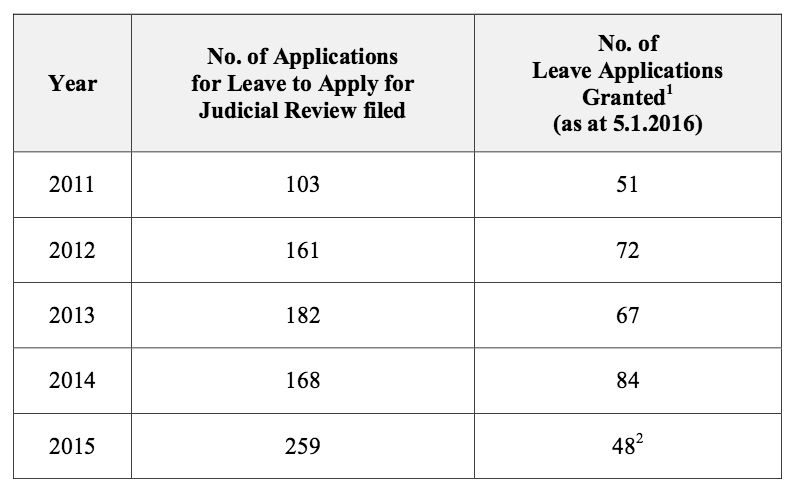The Court of First Instance of the High Court accepted fewer than half of applications for judicial review over the past five years, new statistics show.
Last month, retired Court of Final Appeal judge Henry Litton said the system of judicial review was being abused in Hong Kong, a view shared by Chief Executive Leung Chun-ying.
Finance sector lawmaker Ng Leung-sing raised a question for the government at the Legislative Council on Wednesday. “Some commentaries pointed out that some people had lodged JRs for the purpose of paralysing the implementation of government policies,” he said.

In a written reply, statistics from the Home Affairs Bureau showed that the number of applications filed for leave to apply for judicial review had increased, but the percentage of those granted remained below 50 percent.
Another criticism against the judicial review system raised by Ng was that some judicial review applicants had been easily granted legal aid. The policy objective of legal aid is to ensure that no one with reasonable grounds for pursuing or defending a legal action in the Hong Kong courts is denied access to justice.

According to government statistics, 23 percent of legal aid certificates were granted, on average, between 2011 and 2015.
The government said that the Legal Aid Department has put in place a monitoring mechanism to ensure that the processing of legal aid applications is reasonable and to safeguard against abuse of the system.
Where necessary, the Department of Justice will engage private solicitors or barristers to provide assistance in handling judicial review cases. In 2015, the DoJ spent HK$28 million in expenses for outsourced solicitors or barristers – a decrease of around 30 percent since 2011.

The Department incurred about HK$6 million in net court costs in 2011 and 2015, though it also received a total of HK$24 million in net court costs, presumably due to winning the judicial review cases.
In a judicial review regarding the Environmental Impact Assessment reports of the Hong Kong-Zhuhai-Macao Bridge, the government’s expenditure was around HK$10.49 million.
Good governance
Legal sector lawmaker Dennis Kwok Wing-hang told HKFP he cannot see any evidence of abuse on the face of the statistics given by the Home Affairs Bureau.
“We must trust that our judiciary, in discharging their duty professionally, only grants leave to judicial review cases with merits when there are real legal questions arise in the government’s act. This is evident in the judgments of JR cases,” said Kwok.
“The rise in the number of judicial review cases is not unique to Hong Kong, as you can find similar trends in all common law jurisdictions as people become more educated about their rights and the law. This is the basis of good governance and should not be seen in a negative light.”
